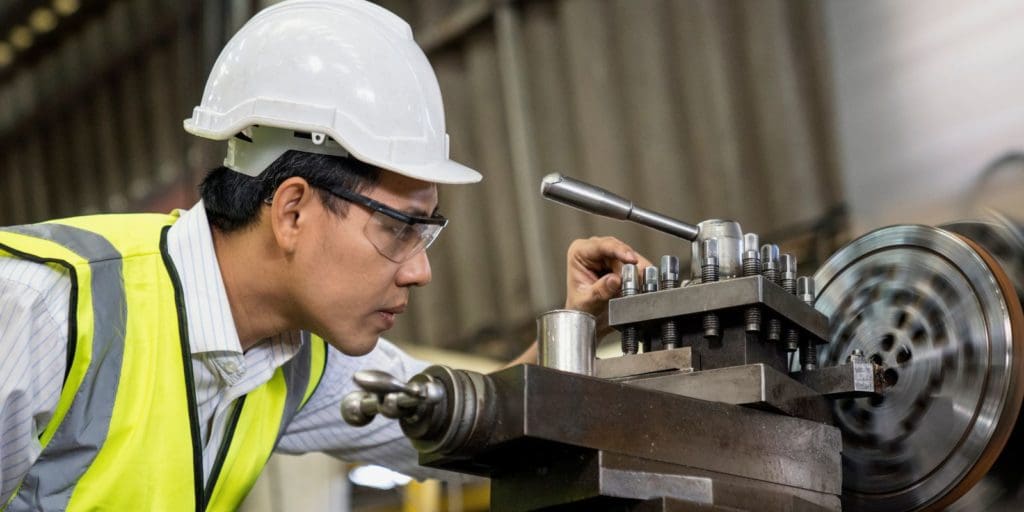In the demanding world of industrial manufacturing, reducing waste has become an essential part of streamlining operations and ensuring profitability. But waste reduction is about much more than just cost-saving measures. It plays a vital role in improving overall efficiency and contributing to the worldwide drive for environmental sustainability.
At a time when issues of sustainability and efficiency are at the forefront of global discussions, the need for industries to adopt effective strategies to minimise waste has never been more pressing.
In this article, explore several strategies for reducing waste in different industrial settings. From lean manufacturing principles to proper employee training, delve into the various ways industries can make significant strides in their waste reduction efforts.
Understanding waste in industrial settings
When we think of waste in industrial settings, what often comes to mind is physical waste: discarded materials, scrapped products, or byproducts of manufacturing processes. However, waste in the industrial context encompasses much more than just material refuse. It extends to wasted time, energy, and space – all vital resources in the manufacturing and production world.
Waste in terms of unused materials can often lead to a direct financial loss. These are resources that the company has invested in, and if they end up not being utilised or discarded prematurely, this leads to an unnecessary increase in costs. This type of waste also contributes directly to environmental harm, particularly if the wasted materials are not disposed of in an environmentally friendly manner.
Similarly, space is a premium resource in most industrial settings. Wasted or underutilised space means the industry isn’t maximising its available resources. Efficient space utilisation can lead to better workflow, increased productivity, and ultimately, reduced costs.
And then there’s the waste of time. Inefficient processes, unoptimized workflows, or even poorly trained staff can lead to significant amounts of wasted time. Not only does this result in decreased productivity, but it also negatively impacts employee morale and motivation.
Recognising these different forms of waste is the initial step towards making meaningful changes and improvements. By understanding where and how waste occurs, industries can begin to implement strategies that address these issues, thereby reducing waste, increasing efficiency, and contributing to a more sustainable future.
Strategies for reducing waste in industrial processes
- Lean manufacturing
Lean manufacturing principles can be adapted to any industrial setting to minimise waste. By streamlining production processes, eliminating non-value-added tasks, and adopting a ‘just-in-time’ approach to inventory management, businesses can dramatically reduce their waste.
- Efficient machine usage
Efficient use and routine maintenance of machines can lower energy consumption and prolong their lifespan, reducing waste significantly. Regular check-ups and timely repairs ensure machines are always performing at their optimal capacity, thus preventing wastage caused by poor performance or breakdowns.
Bandsaws, a key tool in many industries, are an apt example of how proper equipment management can help reduce waste in sectors such as woodworking, metalworking, and meat processing, where precision and efficiency are paramount.
There are several strategies for preventing common bandsaw blade issues and ensuring efficient use of these machines. Regular maintenance, including cleaning and timely sharpening, can significantly extend a blade’s life. For this type of machinery, using the right blade for the job and considering factors like tooth geometry and blade speed, can result in cleaner cuts and less waste. Employing correct cutting techniques can also minimise material wastage.
- Employee training
Employee training plays a pivotal role in waste reduction. A well-informed and skilled workforce can make a difference in operational efficiency and waste management. Investing in comprehensive training programs enables employees to use resources more effectively and understand the importance of waste reduction.
The future of waste reduction in industrial settings
As we gaze into the future of waste reduction in industrial settings, a panorama of innovative possibilities unfolds. Fueled by rapid advancements in technology and a growing global consciousness about sustainability, the future holds immense promise for further reducing waste and creating more efficient, eco-friendly industrial processes.
Digital technologies, including artificial intelligence and machine learning, are playing a crucial role in this shift. These technologies allow for predictive maintenance, which helps prevent machine failure and reduces the waste associated with downtime and repairs. They can also optimise production processes in real-time, minimising the waste of materials, time, and energy.
Automation, another important trend, is transforming waste reduction. Automated systems can carry out processes with a high degree of precision, reducing the margin for error and, thus, waste. Furthermore, automated waste sorting and recycling systems could significantly enhance waste management in industries.
Sustainable materials are gaining traction as part of the future waste reduction strategy. The move towards biodegradable or recyclable materials can drastically decrease the volume of waste that ends up in landfills. Industries are also exploring the use of renewable energy sources to power their operations, effectively reducing energy waste and lowering their carbon footprint.

